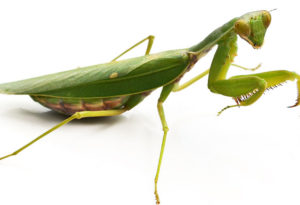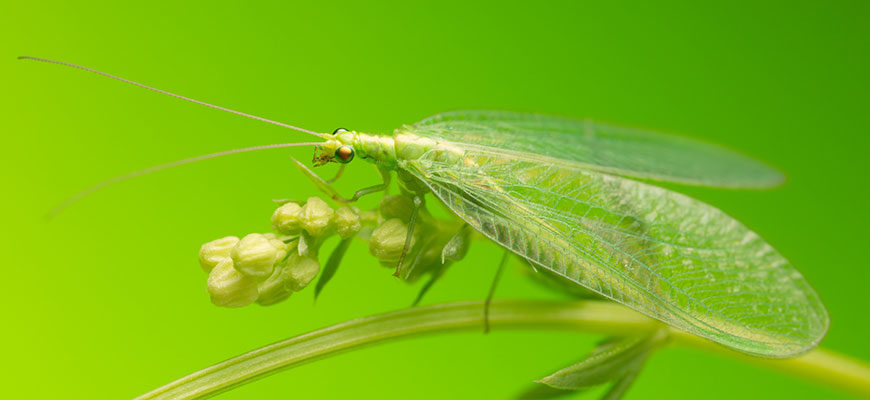One of the most overlooked and undervalued allies in maintaining and promoting a healthy garden are insects. Insects perform important “ecosystem services” that are beneficial to all of our gardens and the environment. They are vital as pollinators, meaning they are essential for most food crops and flowering plants, and many are important predators of “pests” in backyard gardens. Did you know the reason some insects don’t become pests is due to other predatory insects in the environment?
These insects are known as “beneficial” insects. What does it mean to be “beneficial”? The concept of beneficial is actually a term that is only really appropriate when applied to desired goals from a human perspective. In farming/agriculture, where the goal is to produce selected crops, insects that hinder the production process are classified as pests, while insects that assist production are considered beneficial. Out of about a million species of insects, humans consider less than 3 percent as pests. Learning to identify and value the beneficial garden insects for the necessary roles they play is beneficial to you and the environment.
What are some of the more common beneficial insect species you might find in your garden? Praying mantids, green lacewings, assassin bugs, lady beetles and stag beetles.
Insects, especially beetles and their larvae, help plants grow by digging tunnels into the ground allowing water and nutrients to flow into the soil. Insects like dung beetles and flies help recycle nutrients in animal waste back into the soil. The tiny, harmless springtails that reside by the billions in Kentucky forests do the same for fallen leaves. Without aquatic insects like dragonflies, mayflies, and stoneflies, we wouldn’t have fishing in Kentucky. Most game fish are predators and eat aquatic insects. A single dragonfly can kill 100 mosquitoes per day.
Insects work for us ALL THE TIME! They don’t want your money, but they could use a little appreciation and a little help.
 Minimize or don’t use pesticides. The most important thing you can do to protect and encourage beneficial insects in your garden and landscape is to choose insecticides with care. Many beneficials are more sensitive to the insecticides than the pests you are trying to control.
Minimize or don’t use pesticides. The most important thing you can do to protect and encourage beneficial insects in your garden and landscape is to choose insecticides with care. Many beneficials are more sensitive to the insecticides than the pests you are trying to control.- Choose native plant species for your garden. Pollinators are attracted to a wide variety of native species and many adult predator insects also feed on nectar and pollen.
- Provide a small source of water for beneficial insects by putting out a shallow dish of water with stones to allow them dry places to land. Be sure to clean it often so you don’t attract mosquitos!
- Consider creating a ‘No Mow Zone’ in your yard if possible. This is a designated area that is only mowed one or two times a year and allows native plants to regenerate through succession.
Treat these beneficial insects like your gardening allies, and they are sure to become one of your favorite garden additions. Happy gardening!


